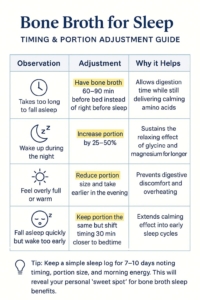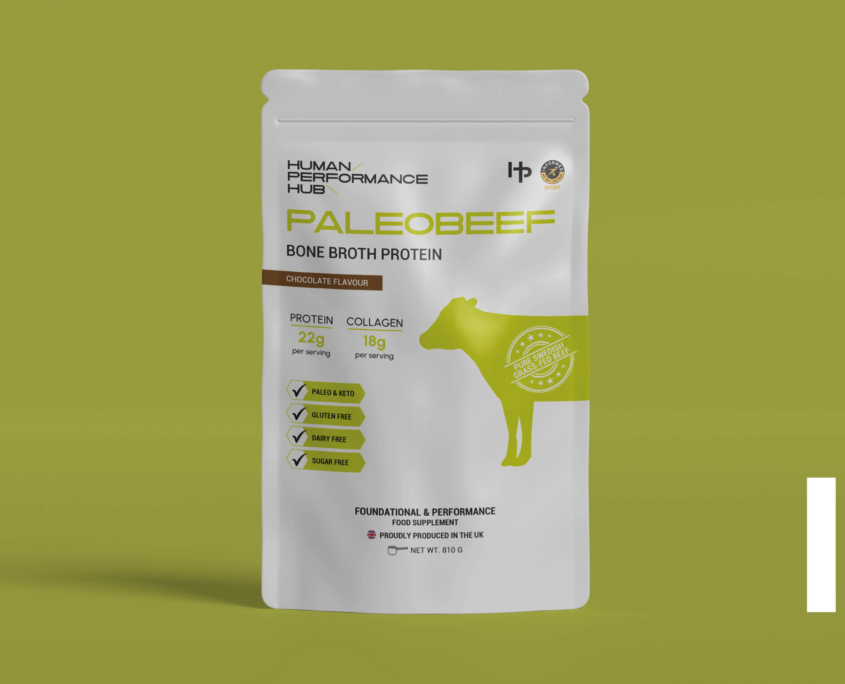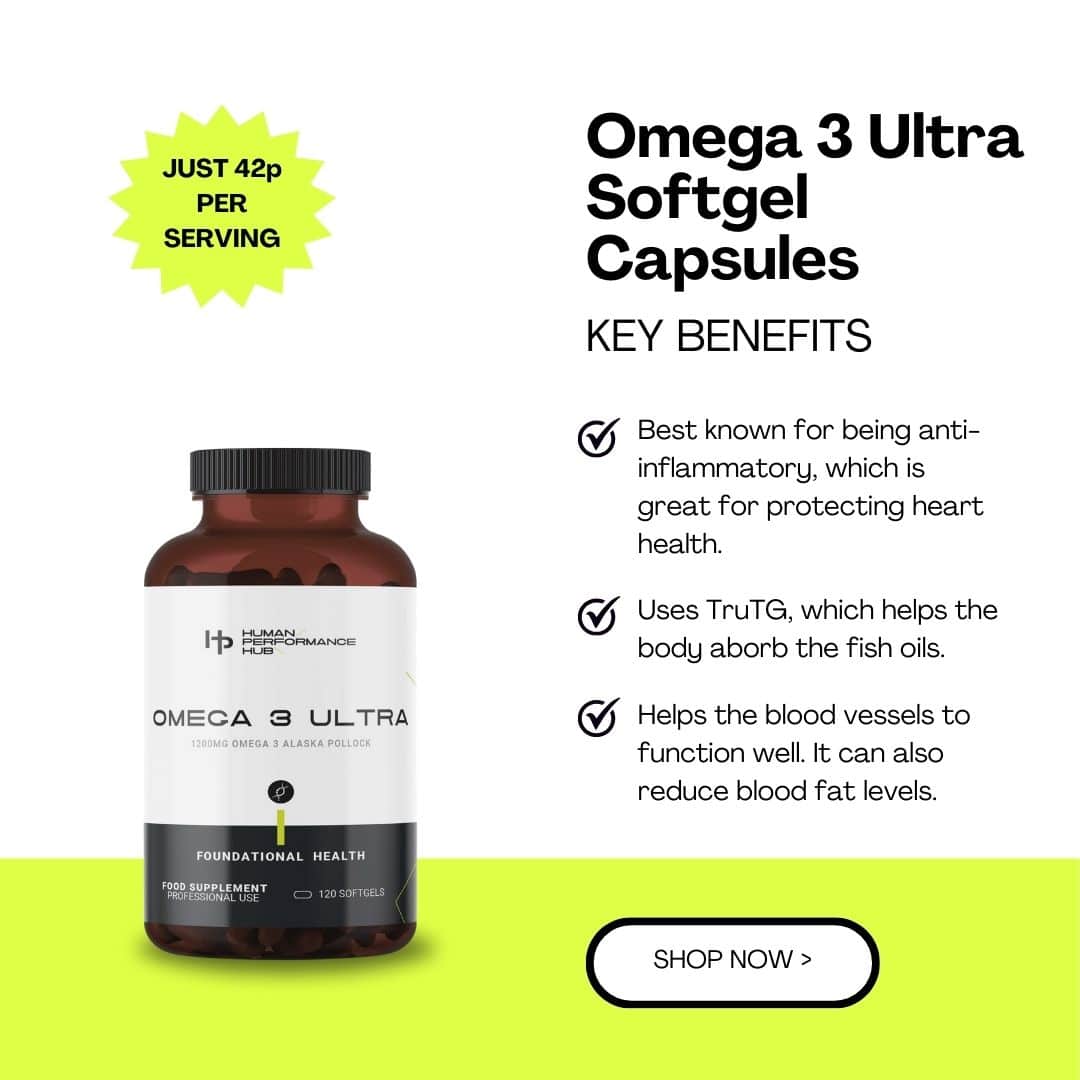Have you been wondering if bone broth, or protein powder with bone broth, will help with sleep? Many people use a mug of warm bone broth powder as a soothing evening ritual – but what does the science say? Let’s break down the evidence, explain the key nutrients involved, and look at how bone broth can support sleep, relaxation, and recovery. So first of all, does bone broth help with sleep?
Yes! Beef bone broth protein contains glycine, magnesium, and collagen, which can improve sleep quality by promoting relaxation, lowering body temperature, and supporting the nervous system. This makes it a natural, nutrient-rich option for better rest and recovery.
Read on to find out more about how amino acids affect sleep, how sleep affects athletic performance, and bone broth’s role in relaxation, stress, and sleep quality. Plus, get some helpful tips on how to integrate bone broth into our sleep routine!
Article Contents:
- The Link Between Amino Acids and Sleep
- Can Bone Broth Help Reduce Stress?
- How Bone Broth Supports Relaxation
- Bone Broth, Gut Health, and Sleep
- Practical Sleep Strategies Using Bone Broth Protein
- Sleep Better with HPH PaleoBeef Bone Broth Protein
The Link Between Amino Acids and Sleep
Bone broth powder is rich in glycine, which is an inhibitory neurotransmitter that is known to encourage sleep. Human studies have shown that approximately 3g of glycine taken before bed can improve sleep quality and reduce the time it takes to fall asleep. And our HPH Bone Broth Protein Powder contains 4.6g of glycine per serving!
This is because glycine lowers the core body temperature and supports serotonin and melatonin production, aiding both relaxation and sleep onset.
While these studies use isolated glycine supplementation rather than bone broth – it shows that bone broth’s natural glycine content makes it an appealing whole-food source of these benefits.
Can Bone Broth Help Reduce Stress?
Glycine isn’t all about sleep – it can also act as a calming neurotransmitter, helping to modulate stress response and lower cortisol levels. This helps to reduce stress and anxiety, making it a comforting option before bedtime to avoid lying awake with loud thoughts.
How Bone Broth Supports Relaxation
Outside of glycine, protein powder with bone broth also contains minerals like magnesium. This is another calming agent that helps regulate the nervous system and promote muscle relaxation.
Magnesium supports the “rest and digest” response, helping to lower physical tension and mental stress before bed. When taken as part of an evening routine, nutrients like this can create a natural, soothing effect that prepares the body for sleep.
Bone Broth, Gut Health, and Sleep
While many people might think the main sleep benefit of bone broth is it helping you to relax, one of the core benefits comes from its impact on digestive health.
Protein powder with bone broth contains natural collagen and gelatin content that make it a valuable ally for digestive wellness. These proteins supply amino acids like glutamine, which helps maintain the integrity of the gut lining and supports a balanced inflammatory response in the digestive tract.
A healthy gut can have a huge positive impact on sleep quality by reducing discomfort that might otherwise disrupt sleep. It also supports overall nutrient absorption, amplifying the other benefits from other nutrients and minerals. This allows bone broth to offer a comprehensive approach to recovery, resilience, and long-term sleep quality.
Practical Sleep Strategies Using Bone Broth Protein
At Human Performance Hub, we recommend bone broth protein powder to all of our clients, including top athletes. Here are a few of our ideas for how you can integrate protein powder with bone broth into your routine to maximise sleep and recovery:
| Strategy | Our Tips |
| Evening Ritual | Sip a warm mug of bone broth about 30-60 minutes before bed to harness the glycine and magnesium benefits |
| Combine with Sleep Hygiene | Reduce screens before bed, maintain a consistent schedule, and create a relaxed environment |
| Optimise Training Recovery | Use bone broth powder post-workout or post-dinner to support joint repair, immunity, and sleep simultaneously |
| Use as a Snack or Shake | Blend bone broth protein into a light shake – rich in collagen and amino acids – to support sleep without overloading calories or digestion |
| Monitor Responses | Track sleep onset, waking frequency, and next-day energy. Adjust serving time or portion if needed |
If you find it’s taking you too long to fall asleep after drinking bone broth protein, try having it earlier in the evening – around 60 – 90 minutes before bed. If you’re waking often during the night, a slightly larger serving could sustain its relaxing effects, whereas if you feel full, a smaller portion could be more comfortable.
Sleep Better with HPH PaleoBeef Bone Broth Protein
Ready to put science into action? Our HPH PaleoBeef Bone Broth Protein Powder is naturally rich in glycine, magnesium, and collagen – key nutrients for supporting deep, restorative sleep. Made from grass-fed, hormone-free cattle with no additives, it’s clean, nutrient-dense, and versatile.
Whether you sip it warm before bed or add it to a shake, you’re getting premium nutrition designed to help you relax, repair, and wake up ready to perform. Plus, it contains 22 grams of protein per serving!










